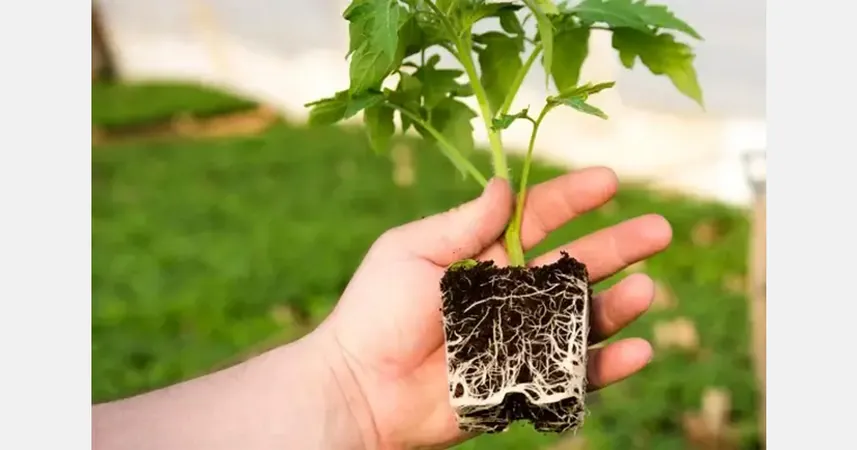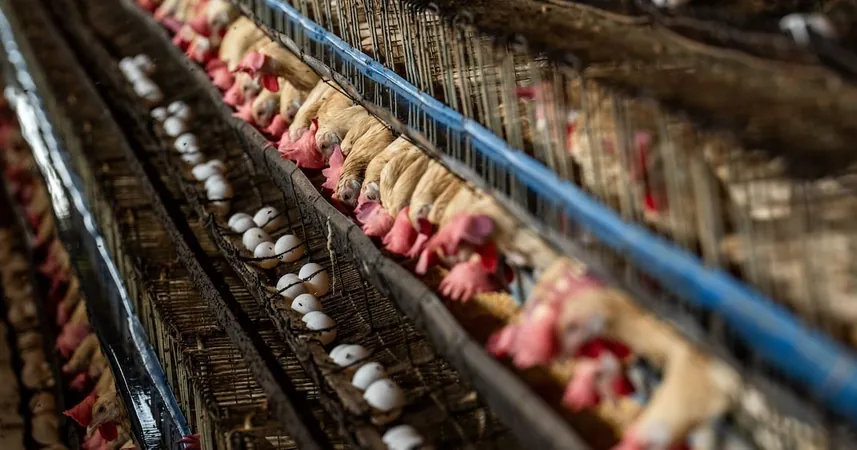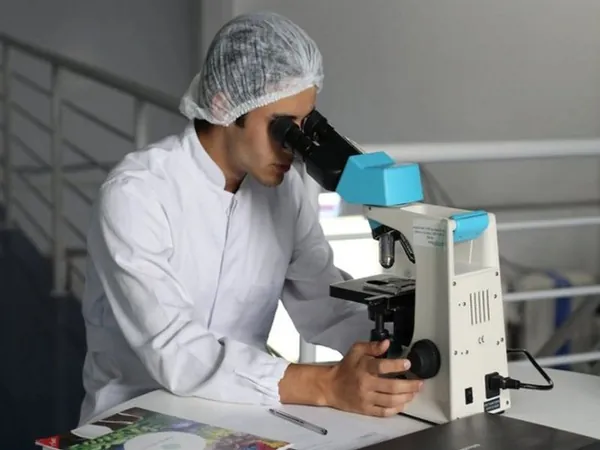
Unleashing the Power of Microbiomes: The Future of Sustainable Agriculture
2024-12-23
Author: Jacob
Bumblebees and Microbial Diversity in Greenhouses
Researchers, led by Dr. Marie Legein from the University of Antwerp, have illuminated a remarkable discovery in hydroponic greenhouses: bumblebees not only play a crucial role in pollination, but they also serve as carriers of beneficial bacteria. By identifying microorganisms like Snodgrasella and Gilliamella residing on both plants and bees, this research highlights an intriguing linkage between microbial diversity and pollination, paving the way for healthier, more resilient crops through biological interactions.
Microbial Warfare in Hydroponic Tomato Cultivation
In another compelling study, Dr. Pablo Vargas and his team at KU Leuven investigated the microbial dynamics affecting tomato plants in hydroponic setups. Their research unveiled a fascinating battle between beneficial microbes, such as Paenibacillus, and harmful pathogens like Agrobacterium, responsible for the dreaded Hairy Root Disease. Findings indicate that greenhouses enriched with beneficial microbes lead to superior plant health and productivity, emphasizing the importance of microbial balance in hydroponic farming practices.
Harnessing Microbial Potential in Rockwool
Dr. Phil Thomas from the University of New England took a closer look at the intricate relationships between rockwool substrates and hydroponic plants. This study revealed that, unlike traditional soil, rockwool allows for the cultivation of beneficial microbes from scratch. The team identified key players like Trichoderma and Pseudomonas, which could be harnessed for disease control and enhanced crop management. The potential for microbiome management in hydroponic systems is ripe for exploration, promising healthier yields for growers.
Managing Water Microbiota for Optimal Growth
Dr. Adeline Picot's research at Université de Brest delved into the hidden microbial ecosystems within hydroponic water systems. Discovering that different water storage techniques shape microbial communities, the team suggested biofiltration as a viable method to curb plant pathogens while preserving beneficial microbes. This innovative approach highlights how water management can significantly boost greenhouse sustainability and plant health.
Plants as Architects of Their Root Microbiome
In a fascinating twist, Dr. Victor Lobanov and his team at the University of Gothenburg revealed that plants, particularly those grown in hydroponics and aquaponics, actively shape their own microbial communities. Their study showed that even in sterilized environments, plants selected specific microbes to thrive in their root zones, underscoring the significant influence plants have on their microbiomes. This insight opens new avenues for targeted microbiome management designed to enhance crop yields.
A "Cry-for-Help" Response to Phytophthora
Exploring the interplay between hydroponic lettuce and the pathogen Phytophthora cryptogea, Dr. Liese Vlasselaer's team at KU Leuven discovered that infected lettuce plants attracted beneficial bacteria, potentially aiding in disease mitigation. This "cry-for-help" response illustrates how microbiomes adapt to stress, paving the way for developing novel biocontrol strategies that protect crops against harmful pathogens.
Conclusion: Towards a Microbiome-Centric Agricultural Future
These six pivotal studies underscore the critical role microbiomes will play in the evolution of sustainable agriculture. As research continues to reveal the complex relationships between plants, microbes, and their environments, it becomes clear that beneficial microbial genera like Paenibacillus, Pseudomonas, and Flavobacterium are key to promoting plant health and resilience. With advancements in filtration methods and microbial management, farmers can effectively suppress harmful pathogens while fostering diverse and harmonious microbial ecosystems. This proactive approach indicates a promising future for agriculture, where integrating microbiome understanding into daily practices leads to healthier plants, reduced reliance on chemicals, and more sustainable farming methods. As we move into this exciting new chapter, the integration of microbial innovation in agriculture is set to revolutionize the way we grow our food. Stay tuned for more updates on this exciting journey toward sustainable agriculture!









 Brasil (PT)
Brasil (PT)
 Canada (EN)
Canada (EN)
 Chile (ES)
Chile (ES)
 España (ES)
España (ES)
 France (FR)
France (FR)
 Hong Kong (EN)
Hong Kong (EN)
 Italia (IT)
Italia (IT)
 日本 (JA)
日本 (JA)
 Magyarország (HU)
Magyarország (HU)
 Norge (NO)
Norge (NO)
 Polska (PL)
Polska (PL)
 Schweiz (DE)
Schweiz (DE)
 Singapore (EN)
Singapore (EN)
 Sverige (SV)
Sverige (SV)
 Suomi (FI)
Suomi (FI)
 Türkiye (TR)
Türkiye (TR)